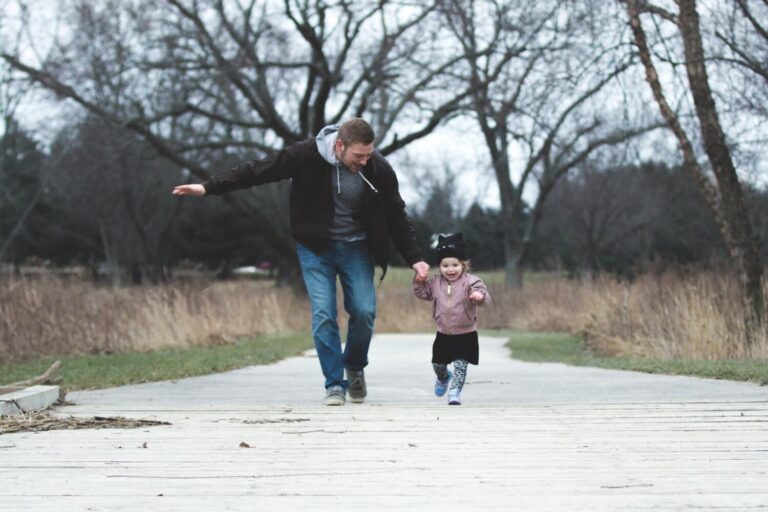The Ultimate Guide to Kindergarten Sight Words + FULL Words List!

Starting school is an exciting time for kids and their parents, too! Kindergarten is a fun age where kids enjoy learning and going to school. But a big part of learning and retaining this new information they will be receiving is a daily practice. And these Kindergarten sight words are a great tool to use to practice.
This guide will teach you how to help children practice phonics, reading, and writing. The sight words listed below are great for Kindergarteners, as well as children in preschool who are preparing for Kindergarten.
They are also an excellent refresher for kids who have recently finished Kindergarten and are starting first grade soon. This guide will teach you how to help children practice phonics, reading, and writing.
In this article, you will find:
- What Sight Words Are
- Why Sight Words Are Important
- Ways to Practice Sight Words
- An Extended Sight Words List
What Are Sight Words?
Sight words are high-frequency words that are used commonly enough that we want kids to be able to recognize them without having to sound them out. Sometimes that’s because these common words might be difficult to sound out when kids first start learning how to read and write.
For example, the words “come,” “would,” and “who” are all sight words that might be challenging to spell or read using the “sound it out” method. So the best way to go about learning them is to memorize them and be able to read them without having to think about it.
Why Are Sight Words Important?
Sight words are important because memorizing sight words will help your children read and write much faster and more correctly than if they didn’t learn their sight words. It’s a key component of reading fluency.
Sight words make up most children’s books and educational material, so kids must master their sight words as they learn to read. Not only will they become more fluent readers, but they will become more confident readers, too.
10 Ways to Practice Sight Words With Your Kids
1. Flashcards
Flashcards are a great way to learn anything requiring memorization, including sight words! They’re convenient to carry around wherever you go and can be used by children with or without a parent’s help.
You can grab your child some printable Kindergarten sight word flashcards. You can print the ones you want and go through them in sections. They are easy to print, so you can make multiple copies and keep one in the car, one in your purse to entertain them in the store, one in the house, etc. Flash cards are also a fun gift for your child’s kindergarten teacher to use in her classroom.
2. Label Things Around the House
Use sticky notes to label different items around the house so that they start to relate the item to its spelling. For instance, you can label colored items with their color, the light switch with the words “on” and “off,” any numbers around the house with the number spelled out, etc. This is a straightforward and laid-back approach to teaching sight words, but every little practice will improve their reading skills.
3. Be Mindful of Signs and Labels When You’re Out of the House
Continually point out words on signs while you’re driving, in the store, etc. Do this as much as you can stand to do it. The more children see the words, the quicker they will learn them. For the words they are starting to get the hang of, quiz them on what they are when you come across them.
4. Have Them Practice Sounding Words Out Before You Tell Them How to Spell Something
When children start to read and write, you will hear “how do you spell ___” all the time! If it’s a word that can be sounded out pretty well, ask them to try to spell it first by sounding it out. Then you can correct them if they were wrong. After they’ve written it, have them practice sounding out each letter. The more they say their letter sounds aloud, the more they will retain it.
5. Read Books Every Day
As we said before, most children’s books are sight words. So reading books on a regular basis is one of the absolute best ways to help your kids learn their sight words. Repetition and exposure are essential to memorizing anything, especially for young children.
Try to read a minimum of 20 minutes a day with your child. Let them pick out some of their favorite books. And as dull as it may be, repeatedly reading the same books is even more helpful in memorizing the sight words using word recognition. Have your child read, too, even if they aren’t quite able to read out loud on their own.
6. Give Your Child Different Options for Writing Their Sight Words
Let your child write their sight words as often as possible, as this is a very effective way of mastering them. Whether on a piece of paper, on the sidewalk with chalk, on the fridge with magnets, in a notebook in the car, in the sand on the beach, or in the air with their finger. Any writing is going to be helpful.
7. Find Ways to Sneak Practicing Into Their Play Time
Kids can practice their sight words without even really making an effort. For example, there is an app called Sight Word Games. You can let them have their screen time while also learning and growing. Screen time for kids can be beneficial if it’s used correctly.
There are also plenty of hands-on learning games that help teach spelling, reading, and writing. Consider getting some fun educational games to play with your child as an easy way to get in some word practice. You can also find some great sight word activities to use, such as word search pages, coloring pages, flash cards, word lists, bingo cards, a memory game, a scavenger hunt, tracing pages, and so much more!
You could also consider putting some magnetic letters on your fridge for them to play with, using sidewalk chalk to write their sight words outside, etc. Try to make the most out of games and activities to ensure they are incorporating some fun learning. Any sort of wordplay is going to be very helpful.
8. Use Movies and Videos As A Tool
Technology can be a huge help in learning new things, not only for kids but adults, too. You can find tons of children’s songs and lessons on YouTube that you can let them watch or even have on in the background. There are also movies and shows such as LeapFrog that teach phonics and sight words.
9. Start Small And Work Your Way Up
Start by helping your child memorize the two-letter sight words first, and once you feel like they’ve got those down pretty well, move to the three-letter sight words, and so forth. Don’t forget to go back and visit the other ones, though. If they don’t continue to practice regularly, they might be unable to retain the information.
Another option is to make a shortlist and focus on as much as possible for that week. You can do crafts or other activities surrounding those few words as a fun way to practice.
10. Reward Their Progress
Nothing excites children more than a reward. Rewards are motivating, and they boost confidence. Decide what you would like as a reward for practicing or learning their sight words. Maybe it’s a half hour of screen time each day after practicing or finishing their homework, ice cream at the end of the week after mastering a few words, etc.
List of Kindergarten Sight Words to Practice
While there are technically only 52 basic sight words for kindergarteners, this list contains extra words that can be used before, during, and after Kindergarten. This list is a great teaching resource for many grade levels, from toddlers to elementary school students.
It is organized by the length of the words to allow you to use them in order of difficulty. Practice the words your child is ready for, and save the other, more unfamiliar words for later.
2 Letter Sight Words
- We
- At
- Am
- It
- Up
- No
- Go
- In
- Of
- By
- Is
- Be
- Do
- Us
- To
- On
- So
- He
- As
- Or
- My
- An
3 Letter Sight Words
- Can
- Yes
- Eat
- The
- See
- Was
- Big
- Has
- For
- She
- Off
- One
- Are
- You
- Run
- And
- His
- But
- Saw
- Got
- Too
- Two
- All
- Him
- Not
- Why
- New
- Day
- Get
- Who
- Red
- Six
- Ten
- Out
- Her
- Who
- Boy
- Ran
- Sat
- Now
- Ask
- Bee
- Eye
- Way
- Man
- Had
4 Letter Sight Words
- Like
- Play
- This
- Want
- Love
- Have
- Come
- Here
- What
- Said
- That
- With
- When
- Went
- Away
- Look
- They
- Jump
- Four
- Came
- Five
- Your
- From
- Then
- Blue
- Pink
- Nine
- Read
- Took
- Give
- Gave
- Many
- Talk
- Hear
- More
- Take
- Some
- Also
- Made
- Girl
5 Letter Sight Words
- There
- Three
- Could
- Eight
- Black
- First
- Where
- Seven
- White
- Brown
- Green
6+ Letter Sight Words
- Little
- Yellow
- Purple
- Animal
- Mother
- Father
- Change
- Should
- Because
Other Sight Words for Kids
Don’t forget to include some other words that might be beneficial for your child to memorize that might not be on this list. For example, friends’ and family member’s names, the street you live on, the town you live in, etc.
Also, although your phone number is not technically a word, it might be something you throw in there, too, because helping your kids memorize your phone number is a great idea!
Final Thoughts On Kindergarten Sight Words
There’s no denying that sight words are essential to learning to read, write and spell. Whether your child is not in school yet or has already completed a few years of school, they’re never too young or too old to practice their sight words.
Whether you homeschool or send your child to public school, learning sight words can be lots of fun. Hopefully, this list of common kindergarten sight words, tips for practicing them at home, and other sight word activities, will come in handy for you and your Kindergartner.
Children learn differently, so it’s nice to try different things to see which works best for your child. Enjoy!






